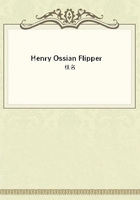
第59章
It was just after "evening call to quarters." I knew Smith and Williams were in our room. I had been out for some purpose, and was returning when it occurred to me to have some fun at their expense. I accordingly walked up to the door--our "house" was at the head of the stairs and on the third floor--and knocked, endeavoring to imitate as much as possible an officer inspecting. They sprang to their feet instantly, assumed the position of the soldier, and quietly awaited my entrance. I entered laughing. They resumed their seats with a promise to repay me, and they did, for alas! I was "hived." Some cadet reported me for "imitating a tactical officer inspecting." For this Iwas required to walk three tours of extra guard duty on three consecutive Saturdays, and to serve, besides, a week's confinement in my quarters. The "laugh" was thus, of course, turned on me.
During the summer of '74, in my "yearling camp," Imade another effort at amusement, which was as complete a failure as the attempt with Smith and Williams. I had been reported by an officer for some trifling offence.
It was most unexpected to me, and least of all from this particular officer. I considered the report altogether uncalled for, but was careful to say nothing to that effect. I received for the offence one or two demerits.
A short while afterwards, being on guard, I happened to be posted near his tent. Determined on a bit of revenge, and fun too, at half-past eleven o'clock at night Iplaced myself near his tent, and called off in the loudest tone I could command, "No.----half-past eleven o'clock, and all-l-l-l's well-l-l!" It woke him. He arose, came to the front of his tent, and called me back to him. I went, and he ordered me to call the corporal. I did so. When the corporal came he told him to "report the sentinel on No.--for calling off improperly." If I mistake not, I was also reported for not calling off at 12 P.M. loud enough to be heard by the next sentinel. Thus my bit of revenge recoiled twofold upon myself, and I soon discovered that I had been paying too dear for my whistle.
On another occasion during the same camp I heard a cadet say he would submit to no order or command of, nor permit himself to be marched anywhere by "the nigger," meaning myself. We were in the same company, and it so happened at one time that we were on guard the same day, and that I was the senior member of our company detail. When we marched off the next day the officer of the guard formed the company details to the front, and directed the senior member of each fifteen to march it to its company street and dismiss it. Iinstantly stepped to front and assumed command. Imarched it as far as the color line at "support arms;"brought them to a "carry" there and saluted the colors.
When we were in the company street, I commanded in loud and distinct tone, "Trail arms! Break ranks!
March!" A cadet in a tent near by recognized my voice, and hurried out into the company street. Meeting the cadet first mentioned above, he thus asked of him:
"Did that nigger march you in?"
"Yes-es, the nigger marched us in," speaking slowly and drawling it out as if he had quite lost the power of speech.
At the following semi-annual examination (January, '75), the gentleman was put on the "retired list,"or rather on the list of "blasted hopes." I took occasion to record the event in the following manner, changing of course the names:
FAILED.
SCENE.--Hall of Cadet Barracks at West Point.
Characters: RANSOM and MARS, both Cadets. RANSOM, who has been "found" at recent semiannual examination, meets his more successful chum, MARS, on the stoop.
After a moment's conversation, they enter the hall.
MARS (as they enter).
Ah! how! what say? Found! Art going away?
Unfortunate rather! 'm sorry! but stay!
Who hadst thou? How didst thou? Badly, I'm sure.
Hadst done well they had not treated thee so.
RANSOM (sadly).
Thou sayest aright. I did do my best, Which was but poorly I can but confess.
The subject was hard. I could no better Unless I'd memorized to the letter.
MARS.
Art unfortunate! but tho' 'twere amiss Me half thinks e'en that were better than this.
Thou couldst have stood the trial, if no more Than to come out low. That were better, 'm sure.
RANSOM.
But 'tis too late. 'Twas but an afterthought, Which now methinks at most is worth me naught;Le sort en est jetté, they say, you know;'Twere idle to dream and still think of woe.
MARS.
Thou sayest well! Yield not to one rebuff.
Thou'rt a man, show thyself of manly stuff.
The bugle calls! I must away! Adieu!
May Fortune grant, comrade, good luck to you!
They shake hands, MARS hurries out to answer the bugle call. RANSOM prepares for immediate departure for home.)"O dear! it is hawid to have this cullud cadet--perfectly dre'fful. I should die to see my Geawge standing next to him." Thus did one of your models of womankind, one of the negro's superiors, who annually visit West Point to flirt, give vent to her opinion of the "cullud cadet," an opinion thought out doubtless with her eyes, and for which she could assign no reason other than that some of her acquaintances, manifestly cadets, concurred in it, having perhaps so stated to her. And the cadets, with their accustomed gallantry, have ever striven to evade "standing next to him." No little amusement --for such it was to me--has been afforded me by the many ruses they have adopted to prevent it. Some of them have been extremely ridiculous, and in many cases highly unbecoming a cadet and a gentleman.